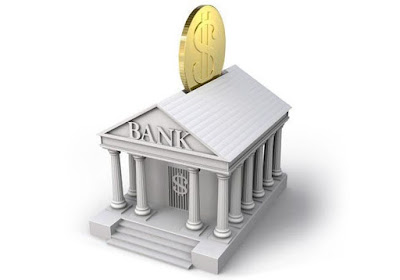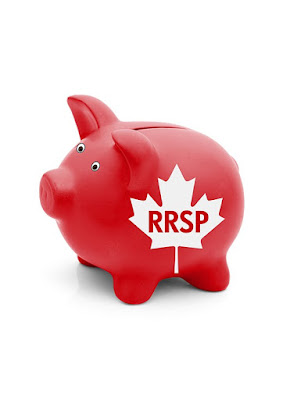As we discussed in
Money Master the Game: 7 Simple Steps to Financial Freedom review – the first step to financial freedom is to accumulate some wealth by saving money. According to different surveys though, the majority of the population has difficulties to save money regularly and efficiently. 30% of the US population admits they never had any savings, and only 5% save regularly.
Basically, there are two major forces when it comes to saving money – “develop saver’s mentality” and “get rid of spending opportunities” – or simply said: “focus on saving” and “avoid spending”. We will cover both of them. Surprisingly for most of you, the second one is easier to adopt so let’s start with it.
I. Avoid spending money tips and tricks
1. Get rid of your credit card. Yeah, you have read it right. Possessing a credit card is all about enabling your spending power. Spend anything, anywhere with the minimum hassle. It doesn’t sound right – especially if you would like to cut on wasting money.
2. Leave only the minimum amount you need for the month into your debit card. Nowadays debit cards could be used as efficiently as credit cards, as long as you have the credit in. So, the trick is to calculate your average monthly need to add 50-100 USD on top and immediately transfer everything else into your savings account. Let’s say you need about 800 USD on average for your basic needs, add another 100 for some emergencies and you end up with a monthly allowance of 900USD; All the rest is saved and not touched.
3. Using the strategy at point 2 usually creates an even better saving mentality. Out of fear that you might run out of funds, you would become extra careful about every dollar spent.
4. Remove your CC and DC credentials from any web sites and online wallets. This might sound inconvenient if you have some favorite stores, but that’s exactly the point. The easier it is to spend – the more you will do it based on emotional urges, instead of well-thought needs.
5. Create strict rules in your head. If you need to spend up to 10 USD; take at least 10 minutes to consider if you actually need the purchase. If the amount is 500 USD or more the rule should be – 20 days to consider and weigh all the pros and cons. If after 20 days, you still believe the benefits heavily prevail – go for it. In most cases after the hype about an item or service is gone – you will feel more likely you won’t benefit from owning it. It leads us to the next point…
6. Avoid owning where you could rent inexpensively instead. Many folks get into mortgages slavery or heavy debt owning stuff. The simple rule is – if you buy something expensive – it should be an investment. If it is not an investment – rent it, instead. An expensive home mortgage - you have to repay for the next 30-40 years, would cripple your ability to save and invest for the period while renting an averagely cheap room would let you have some additional funds to invest and operate with.
7. To elaborate more on point 6 – every “big purchase”, which is not an investment should be avoided. A good example is a new/luxury car – you acquired. Only after one year, its price is probably 30-50% down. Not to mention the hassle on maintenance, supporting it, selling it later, etc… Instead if you rent the car for one year you would probably pay about 5% of its price (top), and in most cases, you are covered in any negative scenario.
8. Get rid of everything, which requires expensive maintenance. It applies, especially to expensive hobbies. Yeah, I know it is cool to have a yacht or go for scuba diving regularly. Also, expensive motorcycles, bikes, etc… are on the target. But all of those will require a huge amount of spending to maintain, support and keep in good condition. It’s even worse if you just use them once a year but keep maintaining them (e.g. losing money) all the time.
II. Now let’s look at the best tips and tricks to develop saver’s mentality
1. Inspire yourself by a vision. Simply saving money for the sake of it, wouldn’t work. You need some inspiration and something to keep you doing it long-term. Start by visualizing your dream. It could be to buy your own house, or to own a portion of the best companies worldwide… or anything, as long as it is big, inspiring and challenging. It could even be something for the sake of improving the lives of all people - like “once I have 100 million dollars, I will invest in cure-for-cancer drugs and treatment”. Print your vision – as an image and “slogan”. Now, you know what your dream is all about. If your vision changes (shouldn’t happen too often) – change the visuals too.
2. Break-down your vision into SMART goals. Each goal should be achievable and be done in a timely manner. E.g. – this week I am going to work extra and earn 100 bucks more, or this week I will develop a new skill to be able to earn 100 bucks more per week with it.
3. Surround yourself with savers and get rid of money-wasters. You know the saying “Tell me who your friends are, and I will tell you who you are”. If your friends are just a bunch of squanderers it will be quite difficult for you to withstand the constant urges to go with the flow and waste money on all the activities, they persuade you. Instead, surround yourself with savers. Sounds boring? That’s not always the case – amazing activities require little to no money-wasting and you would be surprised to see what your new friends suggest doing.
4. Change your lifestyle and money-wasting habits. A great example is being a smoker. On average a smoker spends about 3000 – 5000 USD each year for the indulgence of the bad habit. Smoking is not only devastating to your health; it’s also devastating to your savings account too. Another example is going often to your favorite bar. If it is an expensive venue just change it or stop visiting it. The average amount spent on a night out is about 80 USD. If you only do it once a week – it is still more than 4000 USD each year.
5. Start reading and studying about money, finances, and investments. If money is not interesting to you – then it’s not a surprise you don’t have it. Educate yourself more and more, watch or read at least a couple of related articles, or videos each week. The time doing so is not wasted – it is an investment. The faster you learn – the faster you earn. The good news is most of the information is freely distributed over the net. If you need – go to a course or hire a financial coach and adviser. Again, this is not wasted but invested money.
6. Finally, start investing in different assets in order to master the game of money. Stocks, bonds, properties, funds, commodities, saving account. Diversify your investments, but first, make sure you understand what you are investing in and what your plan is if it goes wrong. Never borrow money if you do not have a reliable plan on how to reinvest and get a better rate on them, before returning.
And finally – make sure you enjoy life. Every day we are exposed to luxury habits and lifestyle by the media. That’s what they are paid to advertise and promote. Don’t go with the flow. There are plenty of “free” and still great activities, and lifestyle you could enjoy even more. How much does it cost to enjoy nature in a park or visit the local gym to have some training sessions with your kids, family or friends?



